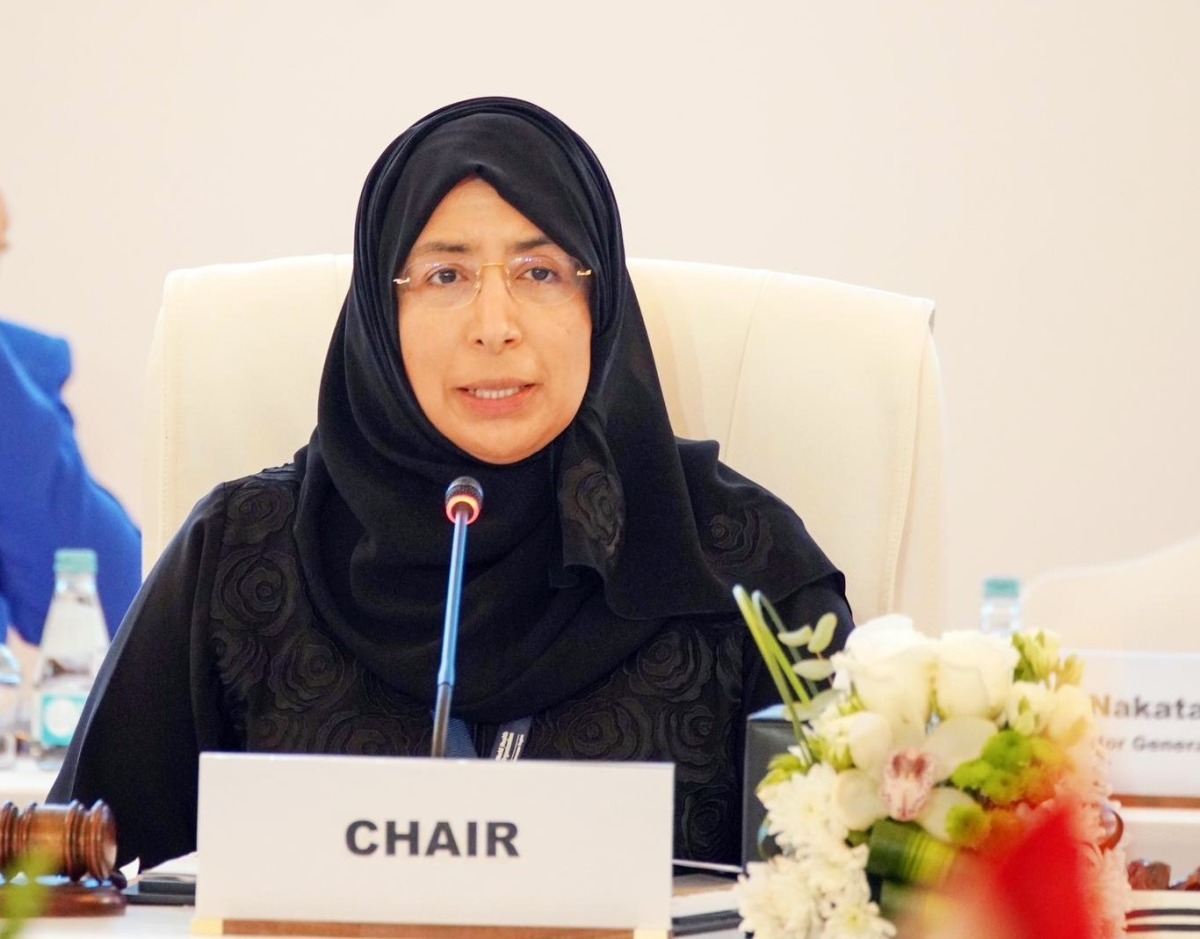Qatar, represented by HE Dr. Hanan Mohamed Al Kuwari, Minister of Public Health, has been elected as the Chair of the committee’s 71st session by the Regional Office of the World Health Organization for the Eastern Mediterranean. Dr. Ahmed Robleh Abdilleh from Djibouti and Dr. Mohammad Reza Zafarghandi from Iran were also elected as Vice-Chairs. Dr. Al Kuwari expressed her gratitude for being elected as Chair, emphasizing the importance of collaborative efforts to improve health in the region and address key health challenges. The meetings for the 71st session are being hosted by Qatar under the theme “Health Beyond Borders: Action, Access, Equity in the Eastern Mediterranean Region,” which will continue until October 17. The meetings are being attended by health ministers and senior officials from the region’s 22 countries, along with representatives from various international, regional, and national organizations.
During the meetings, WHO Regional Director for the Eastern Mediterranean Dr. Hanan Balkhy, along with senior WHO officials, presented strategic plans for the next four years. These plans include a regional strategic implementation plan to guide efforts, three key initiatives to accelerate progress in access to essential medicines, vaccines, and medical products, investment in a more resilient healthcare workforce, and expanding public health actions to address substance abuse. The regional strategic implementation plan aims to enhance cooperation, ensure effective partnerships, promote the use of data, science, and technology for increased health investment, strengthen cross-sectoral collaboration, and improve governance support for health. The plan includes a robust accountability framework with 77 outcome indicators and 107 output indicators to measure results, focusing on efforts for polio eradication, health promotion, expanded universal health coverage, and emergency response over the next four years.
This election of Qatar as the Chair of the committee’s 71st session reflects the country’s commitment to improving health in the Eastern Mediterranean region and addressing key health challenges. The theme of the meetings, “Health Beyond Borders: Action, Access, Equity in the Eastern Mediterranean Region,” highlights the importance of collaborative efforts to ensure access to essential healthcare services for all. The participation of health ministers and senior officials from the region’s 22 countries, as well as representatives from various international, regional, and national organizations, demonstrates a shared commitment to improving health outcomes in the region. The strategic plans presented during the meetings aim to guide efforts over the next four years, focusing on equitable access to essential medicines, vaccines, and medical products, investment in a more resilient healthcare workforce, and expanding public health actions to address substance abuse.
The regional strategic implementation plan introduced during the meetings aims to enhance cooperation, ensure effective partnerships, promote the use of data, science, and technology for increased health investment, strengthen cross-sectoral collaboration, and improve governance support for health. The plan includes a robust accountability framework with 77 outcome indicators and 107 output indicators to measure results, emphasizing efforts for polio eradication, health promotion, expanded universal health coverage, and emergency response over the next four years. This comprehensive plan reflects a commitment to improving health outcomes in the Eastern Mediterranean region through collaborative efforts and strategic investments in key areas such as access to essential healthcare services, a resilient healthcare workforce, and public health actions to address substance abuse.





















